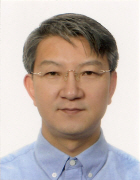people
Professor Lee Sang Yeop, Dean of College Life Science & Bioengineering, was appointed as the chairman of the Emerging Technologies Global Agenda Council of the World Economic Forum.
He will be in office till the 31st of August 2012, exactly 1 year from the date of his appointment.
The World Economic Forum (WEF) is a ‘think tank’ consisting of world leaders in various fields like economics, politics, and policies and has created the ‘Global Agenda Council’ to solve the problems mankind faces in achieving environmentally sustainable growth and suggest a collective vision and strategy.
The committee to be chaired by Professor Lee (Emerging Technologies Global Agenda Council) will discuss the direction in which the fields of biological engineering, nanotechnology, and IT (information technology) should develop and discuss the possible impact these fields will have on the society.
Professor Lee commented that, “I am extremely happy to be appointed as the chair of the Emerging Technologies Global Agenda Council at the World Economic Forum which is a gathering of world class leaders” and that “it is a great opportunity to spread Korea’s success and lessons in the advancement of science and technology.”
Professor Lee is the creator of the field of system metabolism engineering and is making great strides in manipulating the microorganism’s metabolic pathways on a systems scale to make changing chemicals derived from oil into eco-friendly and bio-based products.

-
event KPC4IR Publishes Global Standards Mapping Initiative 2.0
The report highlights South Korea as an early adopter of blockchain in policy and business The KAIST Policy Center for the 4IR (KPC4IR), one of the nine working groups of the Global Blockchain Business Council (GBBC), published the Global Standards Mapping Initiative (GSMI) 2.0, highlighting Korea as an early adopter of blockchain. The report also offers an overview of how blockchain was adopted through an analysis of policy and business cases of South Korea. In partnership with 131 institut
2021-12-21 -
people Professor Sue-Hyun Lee Listed Among WEF 2020 Young Scientists
Professor Sue-Hyun Lee from the Department of Bio and Brain Engineering joined the World Economic Forum (WEF)’s Young Scientists Community on May 26. The class of 2020 comprises 25 leading researchers from 14 countries across the world who are at the forefront of scientific problem-solving and social change. Professor Lee was the only Korean on this year’s roster. The WEF created the Young Scientists Community in 2008 to engage leaders from the public and private sectors with scie
2020-05-26 -
event Long Economic Depressions and Disparities Loom in the Wake of the COVID-19
"Global Cooperation for Managing Data Key to Mitigating the Impacts Around the World" <Full recorded video of the GSI-IF2020> The COVID-19 pandemic will lead to long economic depressions around the entire world. Experts predicted that the prevalent inequities among the countries, regions, and individuals will aggravate the economic crisis. However, crises always come with new opportunities and international cooperation and solidarity will help creating a new normal in the post-corona
2020-04-22 -
policy Korea Policy Center for the Fourth Industrial Revolution Opens
The World Economic Forum’s Center for the Fourth Industrial Revolution opened its Korean affiliate center at KAIST on December 10. The Korea Policy Center for the 4th Industrial Revolution (KPC4IR) will develop policy norms and frameworks for accelerating the benefits of emerging technologies. Many dignitaries including KAIST President Sung-Chul Shin, National Assemblyman Sang-Min Lee, Daejeon City Mayor Her Tae-Jeong, and Managing Director of the WEF Center for the Fourth Industrial
2019-12-10 -
people President Shin Presents Opportunities & Challenges of the 4IR at the Summer Davos Forum
(President Shin makes a keynote speech at the 2018 Summer Davos Forum in China on Sept.20.) KAIST co-hosted the Asia Session with the World Economic Forum during the 2018 Summer Davos Forum in Tianjin, China from September 18 through 20. The session highlighted regional collaboration in Asia to promote inclusive growth in the Fourth Industrial Revolution. KAIST is working closely with the WEF to take the lead in the Fourth Industrial Revolution. Last July, KAIST established the Fourth I
2018-09-21